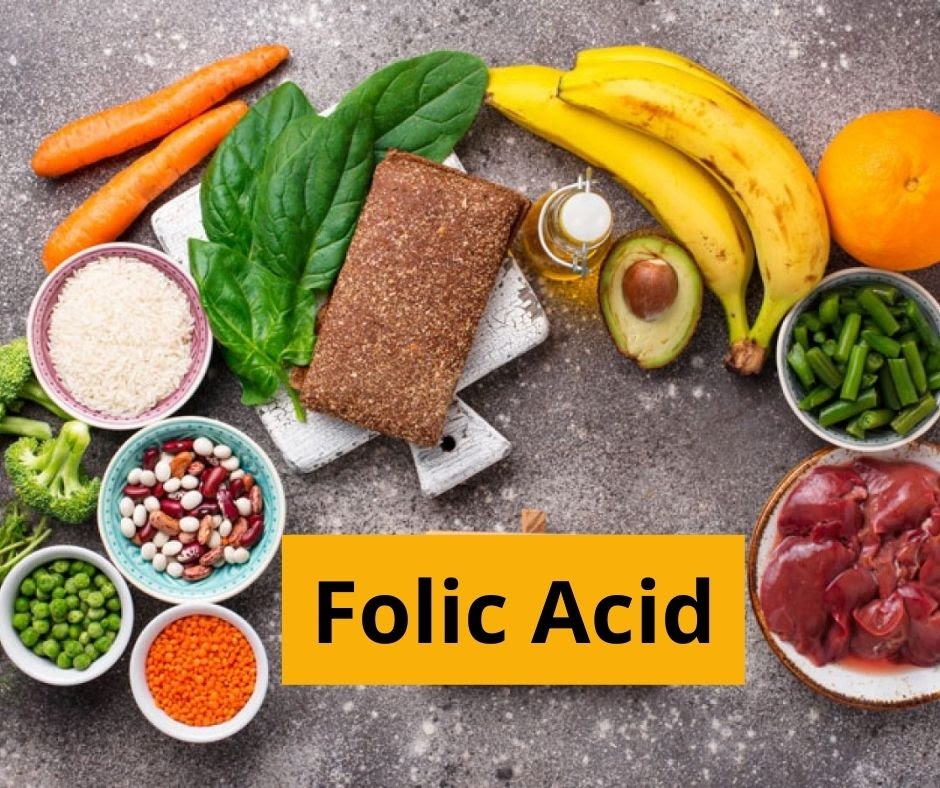Health Benefits of vitamin B9 (Folate)
What are the health benefits of vitamin B9 (Folate)?
Vitamin B9, also known as folate or folic acid (the synthetic form), is an essential nutrient that plays a crucial role in various bodily functions. Here are some of the health benefits associated with folate:
- Cell Growth and Division: Folate is necessary for the production and maintenance of new cells, including red blood cells, white blood cells, and skin cells. It plays a crucial role in cell division and growth.
- Prevention of Neural Tube Defects: Folate is particularly important during pregnancy, as it helps prevent neural tube defects such as spina bifida and anencephaly. Adequate folate intake before and during pregnancy is recommended to reduce the risk of these birth defects.
- Reduction of Homocysteine Levels: Folate helps convert homocysteine, an amino acid, into other substances in the body. High levels of homocysteine are associated with an increased risk of heart disease, and folate supplementation has been shown to lower homocysteine levels.
- Supports Brain Health: Folate is important for cognitive function and mental health. It is involved in the production of neurotransmitters such as serotonin, dopamine, and norepinephrine, which are important for mood regulation.
- Prevention of Anemia: Folate plays a role in the production of red blood cells, and a deficiency can lead to megaloblastic anemia, a condition characterized by large, immature red blood cells.
- Supports Immune Function: Folate is important for a healthy immune system, as it is involved in the production of white blood cells, which help fight off infections.
- May Reduce the Risk of Certain Cancers: Some studies suggest that adequate folate intake may reduce the risk of certain cancers, particularly colorectal cancer. However, more research is needed to confirm this association.
- Supports Heart Health: In addition to lowering homocysteine levels, folate may help reduce the risk of heart disease by improving blood flow and reducing inflammation.
- Supports Skin Health: Folate is important for maintaining healthy skin, as it is involved in the production of DNA and other genetic material in skin cells.
- May Improve Depression Symptoms: Some studies suggest that folate supplementation may help improve symptoms of depression, particularly in people who have folate deficiency.
Including folate-rich foods in your diet, such as leafy green vegetables, legumes, citrus fruits, and fortified grains, can help ensure an adequate intake of this important vitamin.
What are the health risks of vitamin B9 (Folate)?
Folate, also known as vitamin B9, is generally considered safe when consumed within recommended doses. However, there are some potential health risks associated with folate:
- Masking of Vitamin B12 Deficiency: Folate supplementation can mask the symptoms of vitamin B12 deficiency, which can lead to neurological damage if left untreated. It’s important to monitor vitamin B12 levels, especially in older adults, vegetarians, and individuals with certain medical conditions.
- Interaction with Medications: Folate supplements can interact with certain medications, including anticonvulsants, methotrexate (used to treat cancer and autoimmune diseases), and sulfasalazine (used to treat inflammatory bowel disease such as Crohn’s disease and ulcerative colitis). It’s important to consult with a healthcare provider before taking folate supplements if you are taking any medications.
- Increased Risk of Cancer: While folate is important for preventing certain types of cancer, such as colorectal cancer, excessive intake of folic acid (the synthetic form of folate) from supplements may actually increase the risk of other cancers, such as prostate cancer and lung cancer. More research is needed to understand this association fully.
- Allergic Reactions: Some individuals may be allergic to folate supplements, leading to symptoms such as itching, hives, or difficulty breathing. Allergic reactions to folate are rare but can occur.
- Digestive Issues: High doses of folate supplements can sometimes cause digestive issues such as nausea, bloating, and cramping.
- Risk of Overdose: While rare, taking very high doses of folate supplements can lead to an overdose, which can cause symptoms such as numbness and tingling in the hands and feet, irritability, confusion, and difficulty concentrating.
It’s important to note that these risks are generally associated with high doses of folate supplements, and most people can safely obtain the recommended amount of folate through their diet. If you are considering taking folate supplements, it’s best to consult with a healthcare provider to determine the appropriate dosage and ensure that it is safe for you.
What foods are rich in folate?
Folate, also known as vitamin B9, is found in a variety of foods. Here are some foods that are rich in folate:
- Leafy green vegetables: Spinach, kale, collard greens, and other leafy greens are excellent sources of folate.
- Legumes: Lentils, chickpeas, black beans, kidney beans, and other legumes are rich in folate.
- Asparagus: Asparagus is a good source of folate.
- Broccoli: Broccoli is a cruciferous vegetable that contains folate.
- Citrus fruits: Oranges, grapefruits, and other citrus fruits are good sources of folate.
- Avocado: Avocado is a fruit that is high in folate.
- Beets: Beets are a root vegetable that contains folate.
- Brussels sprouts: Brussels sprouts are a cruciferous vegetable that is rich in folate.
- Liver: Liver, especially chicken liver, is a good source of folate.
- Fortified foods: Some foods, such as breakfast cereals, breads, and pasta, are fortified with folic acid, the synthetic form of folate.
Including these foods in your diet can help ensure an adequate intake of folate.




